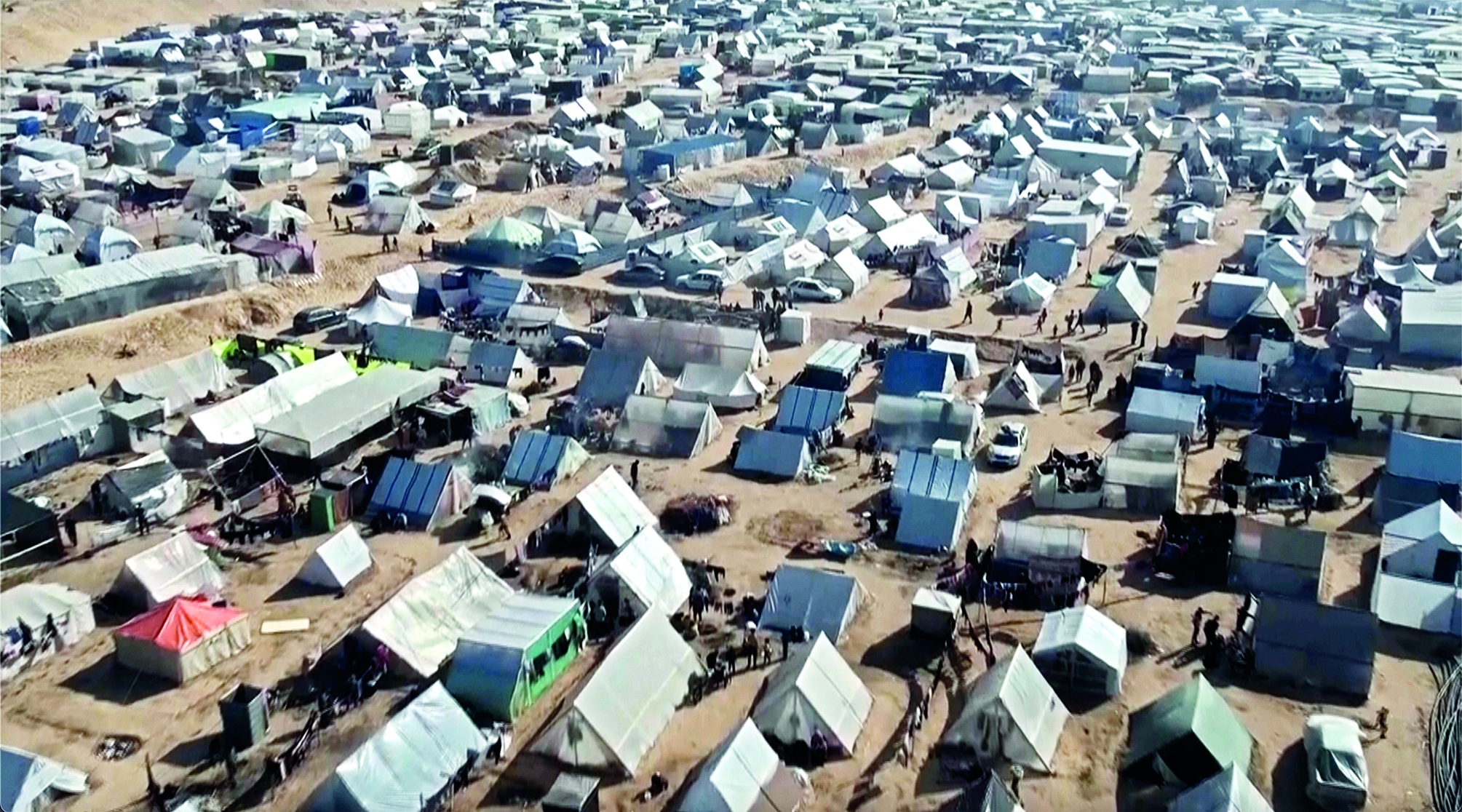Families in Gaza search desperately for food and water, wait in long lines

Muwasi: Stranded in a corner of southern Gaza, members of the Abu Jarad family are clinging to a strict survival routine.
They fled their comfortable three-bedroom home in northern Gaza after the Israel-Hamas war broke out nearly three months ago. The 10-person family now squeezes into a 16-square meter (172-square foot) tent on a garbage-strewn sandy plot, part of a sprawling encampment of displaced Palestinians.
Every family member is assigned daily tasks, from collecting twigs to build a fire for cooking, to scouring the city’s markets for vegetables. But their best efforts can’t mask their desperation.
At night “dogs are hovering over the tents,” said Awatif Abu Jarad, an older member of the family. “We are living like dogs!”
Palestinians seeking refuge in southern Gaza say every day has become a struggle to find food, water, medicine and working bathrooms. All the while, they live in fear of Israeli airstrikes and the growing threat of illnesses.
Israel’s bombardment and ground invasion of Gaza, now in its 13th week, have pushed almost all Palestinians toward the southern city of Rafah along the Egyptian border. The area had a prewar population of around 280,000, a figure that has bulged to over 1 million in recent days, according to the U.N. agency for Palestinian refugees.
Rafah’s apartment blocks are crammed with people, often extended families who have opened their doors to displaced relatives. West of the city, thousands of nylon tents have sprung up. Thousands more people are sleeping in the open, despite the cool and often rainy winter weather.
Most of northern Gaza is now under the control of the Israeli army, which early in the war urged Palestinians to evacuate to the south. As the war progressed, more evacuation orders were issued for areas in the south, forcing Palestinian civilians to crowd into ever smaller spaces, including Rafah and a nearby sliver of land called Muwasi. Even these purportedly safe spaces are often hit by airstrikes and shelling.
The war broke out on Oct. 7 after Hamas militants stormed into southern Israel, killing about 1,200 people and abducting 240 others. The fighting has killed over 22,400 Palestinians, according to the Health Ministry in the Hamas-run territory, which does not differentiate between civilians and combatants.
According to Nouman, Awatif’s brother, the conflict drove the family the entire length of Gaza. They fled their home in the northern border town of Beit Hanoun on the first day of the war and stayed with a relative in the nearby town of Beit Lahia.
Six days later, the intensity of Israeli strikes in the border area sent them south to Al-Quds Hospital in Gaza City. As people started to evacuate the hospital two days later, they traveled to the Nuseirat urban refugee camp in central Gaza, making the 10-kilometer (6-mile) journey on foot.
They stayed in a cramped U.N. school building in Nuseirat for over two months, but left on Dec. 23 as the Israeli army turned its focus toward Hamas targets in central Gaza refugee camps.
They escaped to Muwasi on Dec. 23, believing it was the safest option. On the first night, they slept out in the open. Then they bought nylon and wood in a Rafah market to build a tent.



